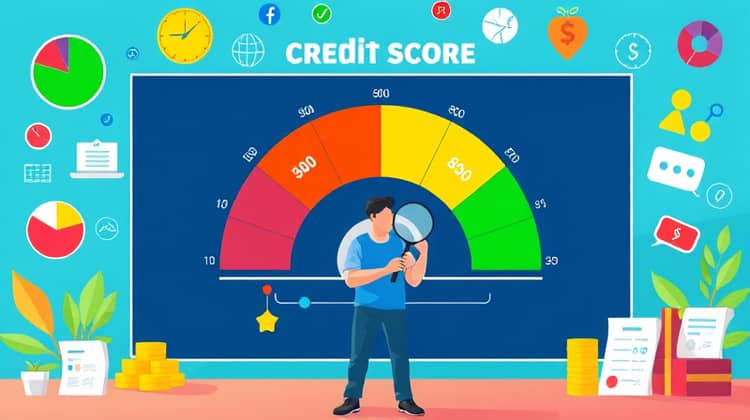Obtaining a personal loan is often a critical step for individuals looking to consolidate debt, finance a large purchase, or manage personal emergencies. However, securing a loan can feel daunting, especially with stringent lending criteria set by financial institutions. Fortunately, there are several strategies that potential borrowers can implement to improve their chances of approval.
The first step towards enhancing your loan eligibility is understanding your credit score. This three-digit number plays a key role in lender decisions, so having clear awareness of your financial standing is essential. By taking proactive initiatives, you can bolster your financial credibility and increase your approval odds.
Beyond just knowing your credit score, you must actively work to improve it. Small changes in your credit behavior can lead to significant impacts on your score. With increased credit scores, lenders are more likely to perceive you as a low-risk borrower, which can lead to better loan terms and interest rates.
Know Your Credit Score

Your credit score is a numerical representation of your creditworthiness, and it can range from 300 to 850. A higher score indicates a better credit history and makes you more appealing to lenders. It's important to regularly check your score and reports to understand your financial standing better.
Many factors contribute to your credit score, including payment history, credit utilization rate, length of credit history, new credit inquiries, and types of credit in use. Knowing which areas impact your score allows you to take appropriate steps towards improvement.
Before applying for a personal loan, obtain your credit report from major credit bureaus to identify any discrepancies that could negatively affect your score. Addressing errors promptly can help avoid potential rejection when you apply for credit.
- Check your credit report from annualcreditreport.com
- Look for any errors or questionable activities
- Know your credit score range and what it means
Increase Your Credit Score

Improving your credit score typically involves consistent and responsible financial behavior. The sooner you begin working on it, the better your chances of obtaining a personal loan. One of the most important steps is to ensure that all your bills are paid on time.
Reduce your credit utilization rate by minimizing outstanding balances on credit cards. Ideally, aim to keep your usage below 30% of your available credit limit. This shows lenders that you manage credit responsibly and are less likely to default on repayments.
Consider becoming an authorized user on someone else's credit card or opening a secured credit card account to help build your credit history, especially if you have a limited credit background.
- Pay your bills on time every month
- Pay down existing debt to lower your credit utilization
- Limit new credit inquiries during this period
Manage Your Debt

Managing existing debt effectively can significantly influence your eligibility for new loans. Lenders evaluate your debt-to-income ratio (DTI) to determine your ability to manage additional debt. A lower DTI usually enhances your approval chances.
If possible, initiate debt repayment strategies, such as debt consolidation or negotiating with creditors for better terms. This proactive approach not only minimizes your financial burden but can also position you as a more reliable candidate for new credit.
Take time to categorize your debts and develop a repayment plan that prioritizes high-interest accounts or those threatening your financial stability.
- Create a budget to track your expenses
- Avoid new debts while repaying existing ones
- Consider professional financial advice for managing significant loans
Check Your Income

Your income level is another essential component lenders consider when reviewing your loan application. Proof of income reassures lenders of your ability to make regular repayments and manage a new loan alongside existing financial obligations.
Gather documentation that validates your income regularity, such as pay stubs, tax returns, or bank statements. Being transparent about your financial situation can foster trust with lenders during the approval process.
Demonstrating a steady income or a notable increase in recent months can set you apart as a reliable applicant, showing that you have the means to repay the loan without difficulty.
- Provide recent pay stubs or bank statements
- Include documentation of any additional income (bonuses, side jobs)
- Showcase a stable employment history
Prepare Your Documents

Another crucial step in improving your chances of loan approval is to prepare all necessary documents beforehand. Having everything organized saves time and demonstrates your commitment to the lending institution.
Some lenders may ask for specific documentation that includes proof of identity, proof of income, and details about your current debts and assets. By being thorough, you project yourself as a responsible borrower.
Consider creating a checklist of all required documents to ensure you submit a complete application, minimizing the likelihood of delays or additional requests.
- Proof of identity (state ID or driver's license)
- Proof of income (salary slips, employment verification)
- Financial statements (bank account details and debts)
Shop Around

Once you've laid the groundwork for an application, it’s important to explore different lending options carefully. Not all lenders offer the same terms, interest rates, or application requirements, so researching various platforms can lead to better outcomes.
Use online comparison tools to evaluate different loans' terms and assess any promotional offers. Don’t hesitate to reach out to customer service representatives for more information.
By fully understanding the market landscape, you can better identify lenders whose offerings align with your financial profile and needs.
Additionally, relationship banking may yield benefits, such as favorable terms or faster approvals if you maintain accounts with a particular bank, allowing you to take advantage of existing trust and rapport.
Avoid Multiple Applications

Applying for multiple loans within a short time frame can negatively affect your credit score, as lenders conduct hard inquiries. Each inquiry resulting from an application can slightly lower your score, leading to potential discrepancies in your creditworthiness perception.
Instead of sending out numerous applications in quick succession, focus on one lender or two at most. This reduces unnecessary credit checks while giving you a clear chance to match your needs with specific loan options.
If you can, pre-qualify for loans, which typically only involves a soft inquiry that won’t impact your credit score.
Choose the Right Loan

Once you gather information on various loan options, selecting the right type of loan is essential. Personal loans, for example, can come in secured or unsecured forms, and making the right choice is crucial for your financial strategy.
Evaluate whether you need a secured loan that may require collateral or an unsecured loan with stricter approval criteria but requires no collateral. Each type has its advantages and disadvantages, so be well-informed before making a final decision.
Consider not just the interest rates but the loan terms, fees, and potential impacts on your long-term financial health when making your decision.
Don’t Forget the Fees

When considering a personal loan, it's essential to understand and factor in all associated fees. Loan fees can include origination fees, prepayment penalties, and late payment fees, which can significantly affect the overall cost of borrowing.
Always read the fine print and ask lenders about potential fees that can arise during the loan term. While a loan may seem appealing with a low-interest rate, hidden fees can quickly undermine that affordability.
Budget for these fees to ensure they won't hinder your financial plans as you negotiate terms with lenders.
Conclusion

Securing a personal loan greatly hinges on your financial readiness and proactive measures taken ahead of time. By understanding your credit score, managing existing debts, and preparing comprehensive documentation, you set yourself up for success.
Exploring various lenders while adhering to smart financial practices such as responsibly choosing loans and avoiding multiple applications will also help improve your chances of approval. Remember, the goal is not merely to qualify for a loan but to do so on your terms that are manageable in the long run.
With strategic planning and awareness, you can navigate the loan process effectively and find the financial assistance you need, making your personal financial goals more attainable.














